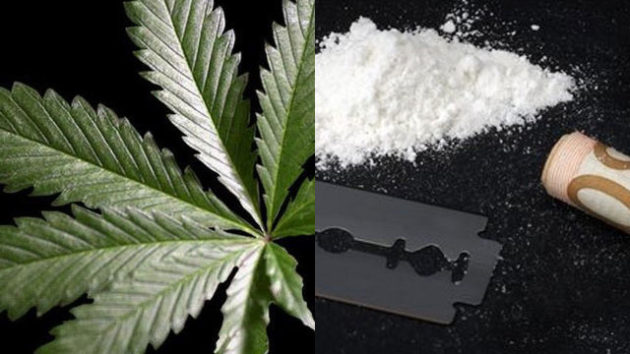Time for the U.S. Department of Justice to crack down on Marijuana
President Trump said during his address to a joint session of Congress,
I have further ordered the Departments of Homeland Security and Justice, along with the Department of State and the Director of National Intelligence, to coordinate an aggressive strategy to dismantle the criminal cartels that have spread across our Nation.
We will stop the drugs from pouring into our country and poisoning our youth — and we will expand treatment for those who have become so badly addicted.
[ … ]
As we speak, we are removing gang members, drug dealers and criminals that threaten our communities and prey on our citizens. Bad ones are going out as I speak tonight and as I have promised.
In The Daily Signal article “How Trump’s DOJ Can Start Enforcing Federal Marijuana Law” Cully Stimson reports:
On Thursday last week, White House press secretary Sean Spicer said he “believe[s] that we will see greater enforcement” of the federal laws against recreational marijuana.
While he acknowledged that the question to which he was responding was better directed to the Department of Justice, Spicer said that state legalization of recreational marijuana “is something the Department of Justice, I think, will be further looking into.”
Spicer’s comments are welcome news for those advocating commonsense drug policy.
Scientists agree that marijuana is a dangerous drug, and no major national medical organization advocates legalization. Whether you agree with that or not, marijuana remains illegal for good reason.
Thorough scientific reviews by President Barack Obama’s Food and Drug Administration and Drug Enforcement Administration—as well as drug classification reviews by federal judges—have affirmed that marijuana should remain a Schedule 1 drug. Such drugs are defined as having “no currently accepted medical use and a high potential for abuse.”
As I have written here and here, the predictable consequences of marijuana legalization are beginning to emerge in states like Colorado and Washington.
Annual reports from the Rocky Mountain High Intensity Drug Trafficking Area, Smart Approaches to Marijuana, and the Colorado Department of Public Safety have analyzed the negative impact that marijuana legalization has had on health and public safety in Colorado.
President Trump, unlike his predecessor, has not used drugs and does not drink. President Trump is concerned about the social cost of a society that finds the use, and expected abuse, of drugs and alcohol to be wrong on many levels.
Stimson presents eleven (11) commonsense recommendations which are consistent with an interest in public health and safety of all Americans.
This President can turn the tide on drug abuse and the debilitating effects and crime that accompany it. Crimes such as human trafficking, murder, sale of heroin and cocaine and death.
RELATED STUDIES:
Stages and pathways of drug involvement: Examining the gateway hypothesis
Stages in adolescent involvement in drug use



Leave a Reply
Want to join the discussion?Feel free to contribute!